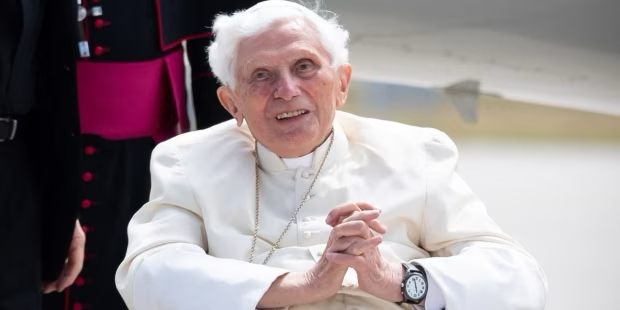privacy
-
What is the use of tradition?
Tradition requires constant conversion. It's no picnic! Tradition requires constant effort. And even the most important effort: that of not forgetting. Tradition is of little use for remembering; it serves primarily to not forget. It loses its Continue reading
-
The foam of lives

Can we still take refuge in our inner life, behave like rebels in this world that loves nothing but exteriority and its procession of emotions pushed to their paroxysm and that warps lives to make them all similar and ghostly? Continue reading
-
Family spots
Why do we think it's easy to have a family? We think what is natural is easy. However, the sense of what is natural has evaporated by forgetting its law. So it is with love. Love is born from the law, It dies when it is trampled underfoot. Love perishes under the blows of anarchy Which confuses love and conceals it. Love takes on other finery. How can we believe that it is enough to Continue reading
-
The gold digger

One day, he fulfilled his only desire every day without effort. He would get up and count in his mind the time it took him to do it. He counted time as if he were mastering it while it was slipping away. He knew his age, but he persisted in not letting himself be surprised by its effects. He asked his Continue reading
-
Social gathering at the Vatican
It's always a surprise to discover, like this morning, an interview with a person, whether famous or not, but representative of our times, admitting that their meeting with Pope Francis was one of the most significant moments of their life, but not taking any action from it. As if this meeting was meant to be a moment among... Continue reading
-
Sundays
Is it Sunday? It's Sunday! Smelling the dawn as we speak to the public, Savoring a hearty breakfast, it's a day of celebration, let's not forget it or rather let's remember it. Getting ready for a big day, the big day! Listening to a grumpy taxi driver complaining about how the world is going wrong, Distracting yourself from this conversation, like any other discussion, Going up Continue reading
-
Prayer, every morning in the world.
How wonderful that these senses, all these visual or tactile or sound or taste or smell impressions, return and form memory, where the mind resides. What poetry! Continue reading
-
Exile, migrants and the Holy Father (2)
Reflections on the Holy Father's various remarks regarding migrants Not all migrants arriving in Europe today are fleeing a catastrophic situation. They often arrive with big smiles on their faces. They don't all seem destitute. They show no nostalgia for their country and arrive in large numbers to find another Continue reading
-
Exile, migrants and the Holy Father
One only has to listen to the captivating music of some tangos, Carlos Gardel, of course, Astor Piazzolla too, and others, who sang of exile, the distant, the inaccessible, to chase away their waves of soul, their melancholy and live for the time of a song in the combined happiness of their memories and their hopes, to feel the distress Continue reading
-
Letter to Pope Francis regarding the Mass
Preamble This letter to Pope Francis was first written for The Roman Way 1 to bear witness to the beauty and efficacy of the traditional Roman rite and to bear witness to the shock caused by the motu proprio, Traditionis custodes, published on July 16, 2021 by Pope Francis. Holy Father, I was extricating myself from a terrible Continue reading
-
Benedict XVI in Paradise!

—Is it morning or evening? My breath stopped, then started again. As if it were giving signs of a defect. It was leaving me. The pneuma was leaving me. I breathed that I was ready. My God, how I love it! But, the breath returned, as if it had gone out on an errand. The memores is out. Continue reading
-
Paradise Lost by Sebastien de Courtois
There is a nostalgia for a lost paradise. We all feel it, more or less; it connects us to Original Sin and the Fall. This illness torments pure souls. It languishes and agitates. A youthful illness if ever there was one, a romantic madness, this nostalgia is at the heart of Sébastien de Courtois's novel, Continue reading
-
Craftsman's Prayer
12th Century Monastic Prayer Teach me, Lord, to use well the time You give me to work… Teach me to unite haste and slowness, serenity and fervor, zeal and peace. Help me at the beginning of the work. Help me in the heart of the labor… And above all, fill the gaps in my work Yourself. Continue reading
-
Antigone, rebellious and intimate (7/7. Love)
7th and final part: Love Antigone's desire is familial; she does not want to leave her brother unburied; Creon, on the other hand, wants to assert himself as king and demonstrate his power. Antigone favors family ties that embody love and reveal a being. Creon establishes his power by signing a bill that must Continue reading
Antigone , stupidity , counter-revolution , ethics , history , intimacy , forgiveness , politically correct , religion , totalitarianism , tradition